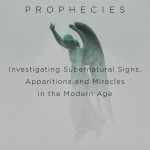One of my favorite Merton quotes, and NPR’s media maven Dick Meyer uses it in his book Why We Hate Us is this one:
As long as I assume that the world is something I discover by turning on the radio . . . I am deceived from the start.
It may be time for me to put that back up in my header.
Merton died 40 years ago today. His biography, The Seven Storey Mountain was an instant classic upon publication in 1948; it remains a must-read for the spiritual pilgrim. In fact, as Fr. Jim Martin, himself a successful writer, (his My Life With the Saints is a modern “classic” in my humble opinion), says of Merton in this essay, today: “…Amazon numbers, 40 years after his death, would be the envy of most living authors.
I’m sure both Martin and Meyer can relate.
Deacon Greg has long been a Merton fan.
Some Catholics have a problem with Merton, for a variety of reasons. Those Catholics who look solely to canonized saints for their human-inspiration don’t like him much; he is all too human, terribly faulty – honest to a fault, too – his ecumenical bent will probably always get in the way of some in their ability to appreciate him.
I like Merton because he allows a common person like me to get lost in quasi-mystical reverie without self-consciousness. He is not Catherine of Siena, who was very wise and inspiring but sometimes a little intimidating in her fervor. Merton lets you ramble around with him, and just allow the stuff in your head to take off on its own.
The man who could write this…:
“I have the immense joy of being man, a member of a race in which God Himself became incarnate. As if the sorrows and stupidities of the human condition could overwhelm me, now that I realize what we all are. And if only everybody could realize this! But it cannot be explained. There is no way of telling people that they are all walking around shining like the sun.”
Would surely be tolerant of a lesser mind writing this:
…Atoms are mountains; mountains are atoms – all creation quivers with the love and intention of the Creator.
…Today I sat in a room full of strangers, and while I did not see them “shining like the sun” ala Thomas Merton, I saw them with better-than-my-own eyes, with perhaps an infinitesimal bit of “God-eyes” – the tiniest sense of love, comprehension, recognition, compassion for everyone there – a mere millisecond of bright understanding, no more than the smallest speck of sand in the vast beach/ocean/desert that is God’s constant awareness, God’s constant, intensive intent. Just that one flash, that snapshot felt so enlarging. So then, how vast and huge and unfathomable is the reality of the love of the Creator?
Merton, for all his ecumenism annoys some, was fervent about the Holy Eucharist:
I tell you there is a power that goes forth from that Sacrament, a power of light and truth, even in to the hearts of those who have heard nothing of Him and seem to be incapable of belief.
…hat tremendous, secret and obvious immolation, so secret that it will never be thoroughly understood by a created intellect, and yet so obvious that its very obviousness blinds us by excess of clarity; the unbloody Sacrifice of God under the species of bread and wine.
I love that. What a confession! I love the power of it; the certainty of it. It reflects my own understanding of the Eucharist but elongates it.
And it’s written so elegantly! As is this:
The devil is no fool. He can get people feeling about heaven the way they ought to feel about hell. He can make them fear the means of grace the way they do not fear sin. And he does so, not by light but by obscurity, not by realities but by shadows; not by clarity and substance, but by dreams and the creatures of psychosis. And men are so poor in intellect that a few cold chills down their spine will be enough to keep them from ever finding out the truth about everything The devil does rob us of clarity by casting us about in shadows. But he fools us into thinking that the shadows are light. Our illumination is only illusory.
Merton was on a journey, as are we all. The faith-journey takes a whole lifetime and can sometimes lead us to surprising places – places that might cause others to frown in wonder – but, because it is a journey, it is never static; it never stays in one place for very long. Since we’re all on the move, and passing through, the lesson is – perhaps – let’s give each other a little room on the pathways, while we’re making them straight.
None of us on the journey, whether we are rare spiritual masters or common saplings, ever get to rest on our laurels and think we’ve got it all.
The moment you think you do have it all should be the moment you worry about how little you know.











